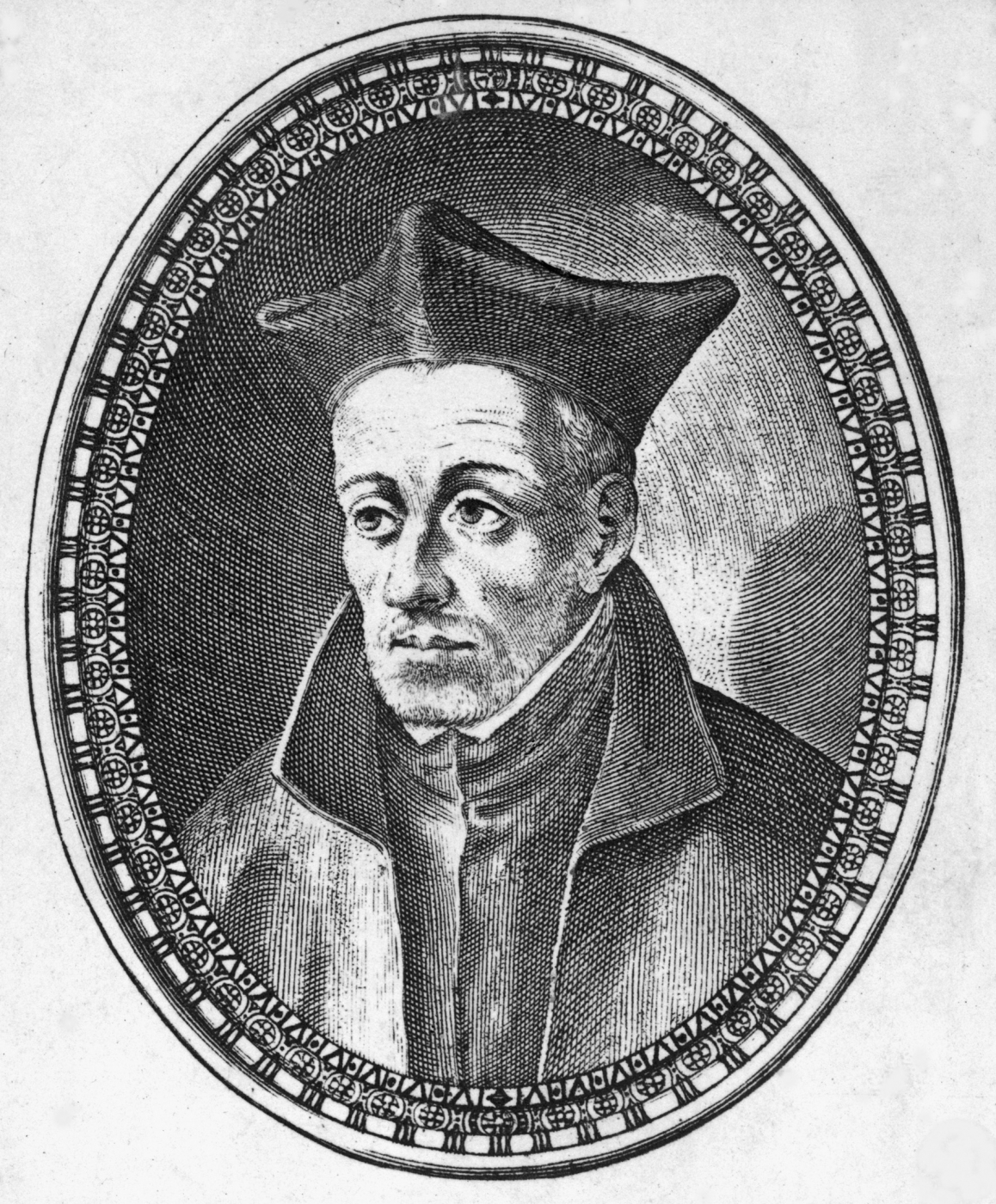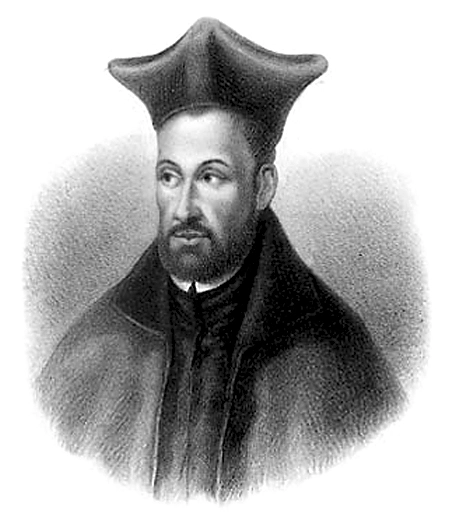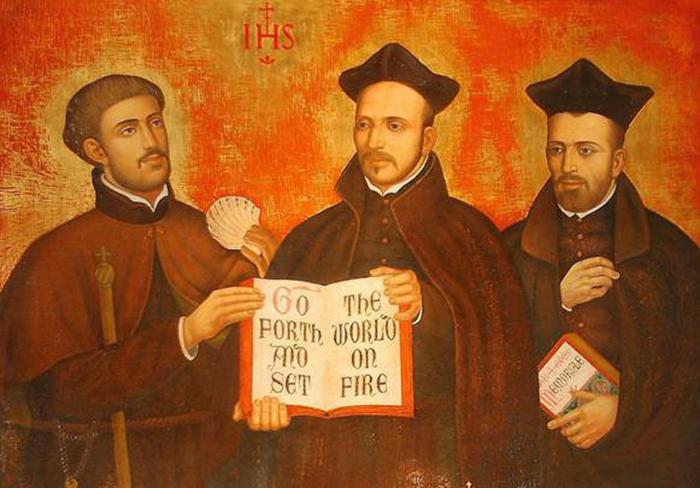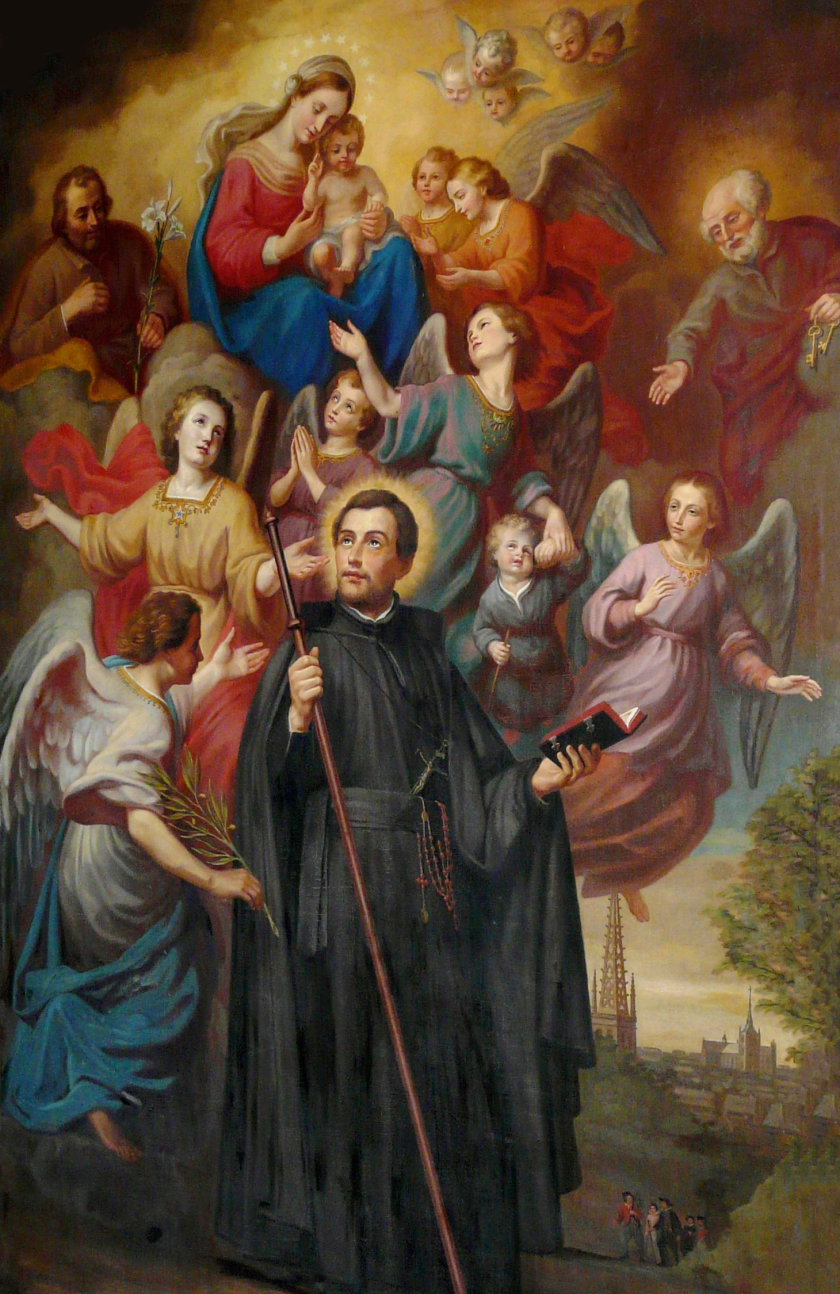“Take care never to close your heart to anyone.”
Peter was born on April 13, 1506, in the village of Villaret, Savoy, France. As a youth, he shepherded his father’s flock on the high pastures of the Alps and had no education other than what one receives at home. He was endowed with an extraordinary memory. He could hear a sermon in the morning and then repeat it verbatim in the afternoon for this friends.
He was plagued by major mood swings, was a gentle spirit, and was very hard on himself. He wanted to attend school, but his family was too poor, and he cried every night. His parents heard his pleas and at the age of 10, was sent to a small school, run by the parish priest, about 7 miles away. He quickly learned, and the following year he was sent to La Roche, 12 miles away, where he remained until he attended the University of Paris at the age of 19.
His roommate was Saint Francis Xavier. Several years later, they accepted another, but much older roommate, Saint Ignatius of Loyola. With his friend’s help, Peter utilized daily prayer and spiritual exercises to help him cope with his swinging temperament.
Although he studied Theology and Philosophy, Peter was undecided about his future and became Saint Ignatius’ 1st recruit. On August 15, 1534, the Feast of Our Lady’s Assumption, Ignatius and his 6 companions pronounced their vows into priesthood.
Father Ignatius gathered his friends and followers and they visited Rome to present themselves. The Pope received them and approved them as an official religious order, calling themselves the Society of Jesus, or later referred to as “Jesuits”. Ignatius considered Faber best suited to direct others in the Spiritual Exercises, a series of meditations for spiritual growth.
They sought to serve as missionaries in Jerusalem, but war had broken out with the Muslim Turks. They then offered their services to the Pope and Father Faber was appointed to Rome’s Sapienza University, reforming both clergy and laity.
Europe had been in the midst of political and religious upheaval. At the age of 35, Father Faber was instructed to accompany the Emperor Charles V and his group to the colloquy in Worms, Germany, to bring unity and people back closer to their faith within the Church. Peter was downtrodden with the overwhelming work and the emperor’s hope of unifying the Catholics and Protestants met a sad end. Father Faber’s heart was left “tormented by a steady and intolerable pain”, but still many Princes, Prelates, Priests, and people found him a source of instruction and guidance leading to renewal.
Regardless of where he was at, Father Faber set about preaching, hearing confessions, and giving Spiritual Exercises.
In 1544, he was assigned to Portugal at the request of King John III, who wanted him to pursue establishing the Jesuit Society in his country. He spent 2 years in Spain and Portugal, traveling on foot, and was then appointed as one of the papal theologians at the Council of Trent by the Pope. He set out on his journey but his health became weakened with frequent bouts of fever. He sought and met up with Father Ignatius after being separated for 7 years.
Ready to head off for Trent, fever again attacked him. Though he was only 40 years old, he knew his end was coming and waited peacefully. He made his confession and on the morning of August 1, heard mass and received the last sacraments. That afternoon he passed away.
“Seek grace for the smallest things, and you will find grace to accomplish, to believe in, and to hope for, the greatest things. Attend to the smallest things, examine them, think about putting them into effect, and the Lord will grant you greater.”
His feast day is August 2.
For God’s Glory.



